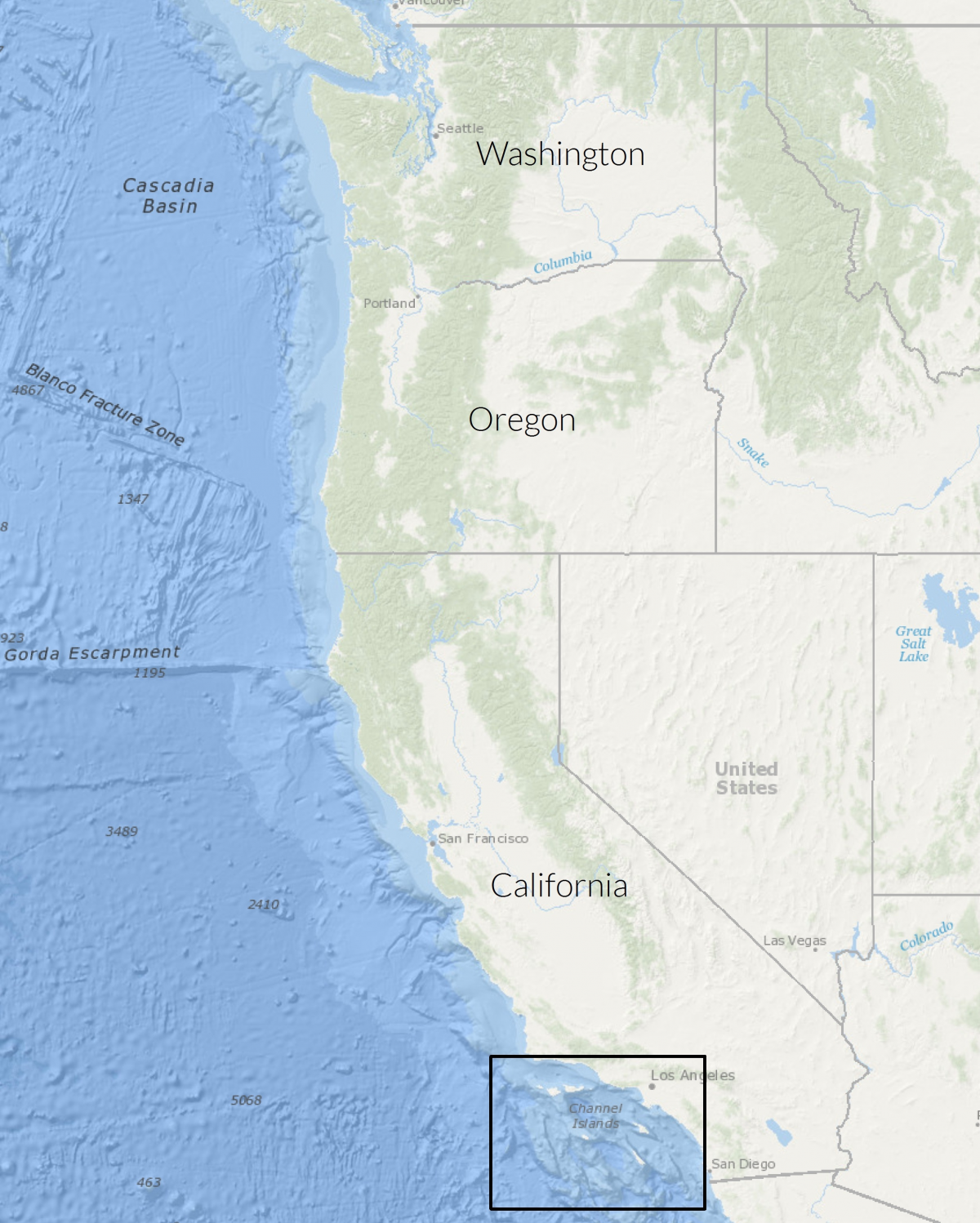Southern California Expedition 2016
PROTECTING SPECIAL PLACES
Ocean waters stretching from Point Conception, California to the Mexico border are home to deep sea ocean habitats that provide areas for shelter, feeding, and breeding for diverse species of ocean life. Oceana is embarking on a week-long ocean expedition
Share
Overview
The ocean environment off Southern California is truly a unique place. The complex undersea geology caused by a series of faults, banks, and underwater mountains (seamounts) makes for a diverse seafloor unlike any other off the U.S. West Coast. This geology combined with cold nutrient-rich waters that upwell from the deep make this region a global biological hotspot supporting diverse ocean life and habitats. The large swath of ocean from Point Conception, California to the Mexico border includes migratory routes for large whales—including blue whales—nurseries for great white shark pups, and breeding and foraging habitat for California sea lions and brown pelicans to name a few. Integral to this productive ocean ecosystem are living animals—like corals and sponges—that make up seafloor habitats providing food and shelter for recreationally and commercially important fish species (including dozens of species of rockfish, Pacific cod, and lingcod) as well as other ecologically important marine life (including octopus, sea stars, and clams).
This map highlights the ROV dive sites.
Oceana examined corals, sponges, rocky reefs, underwater mountains and canyons, and other types of deep sea architecture to depths up to 435 meters (1,427 feet) below the ocean surface. We explored sites Oceana has proposed be protected from bottom trawling—the most damaging fishing practice to seafloor habitats off the U.S. West Coast. In 2006, Oceana’s advocacy helped secure bottom trawl protections for a handful of important areas off Southern California such as Catalina Island and Cherry Bank. However, over 16,000 square miles are not permanently protected from bottom trawling and most of the seafloor habitat in this region remains unexplored. Through scientific exploration, Oceana intends to collect data and imagery that documents the merits of protecting these rare and sensitive habitats. With so much of the deep sea still a mystery, who knows what we may find!
You can explore some of the most at-risk areas by embarking on this tour www.oceana.org/PacificSeafloorTour.
The photographs below illustrate some of the spectacular habitats documented on this expedition.
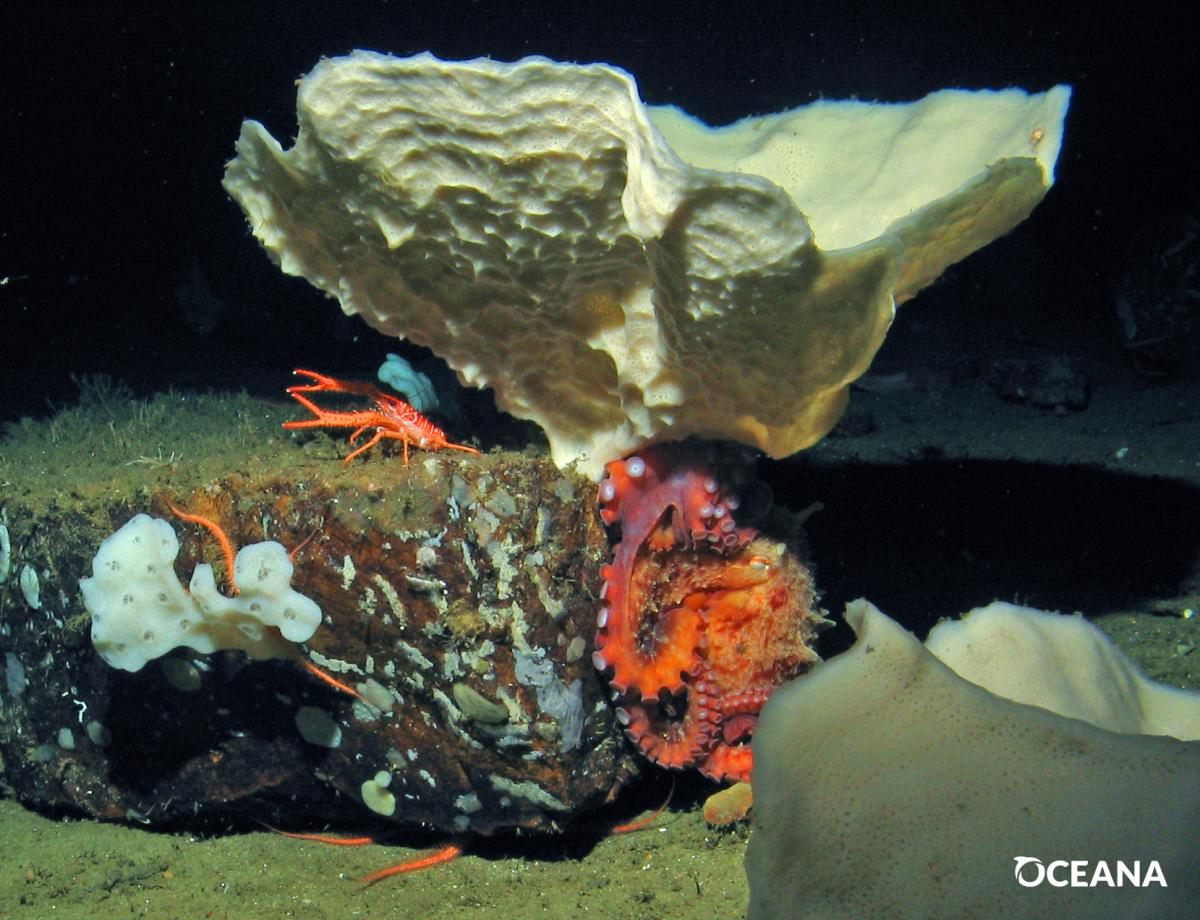
An octopus hides out while a squat lobster stands on guard beneath a vase sponge at a newly identified rocky reef off Santa Barbara Island.
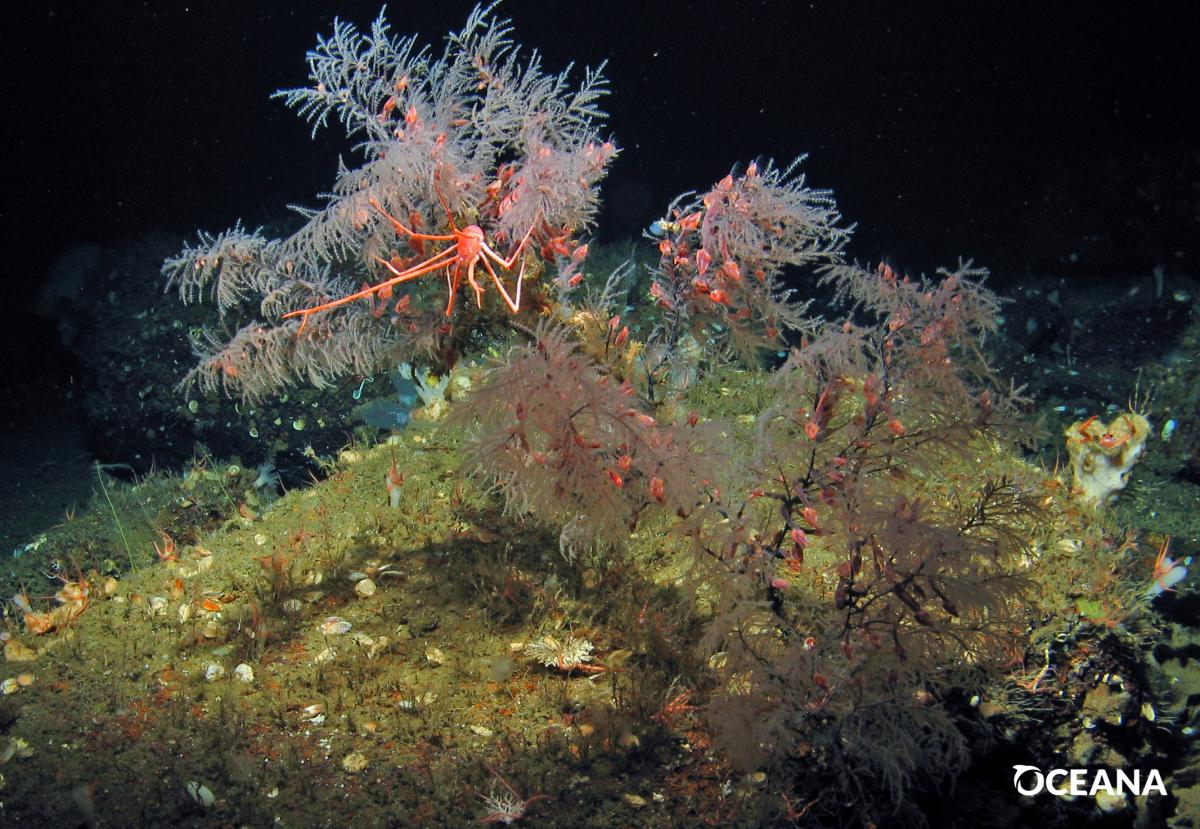
A squat lobster perches on a black coral adorned with pink barnacles at a newly documented coral garden off Santa Barbara Island. Some black coral colonies can live for thousands of years.
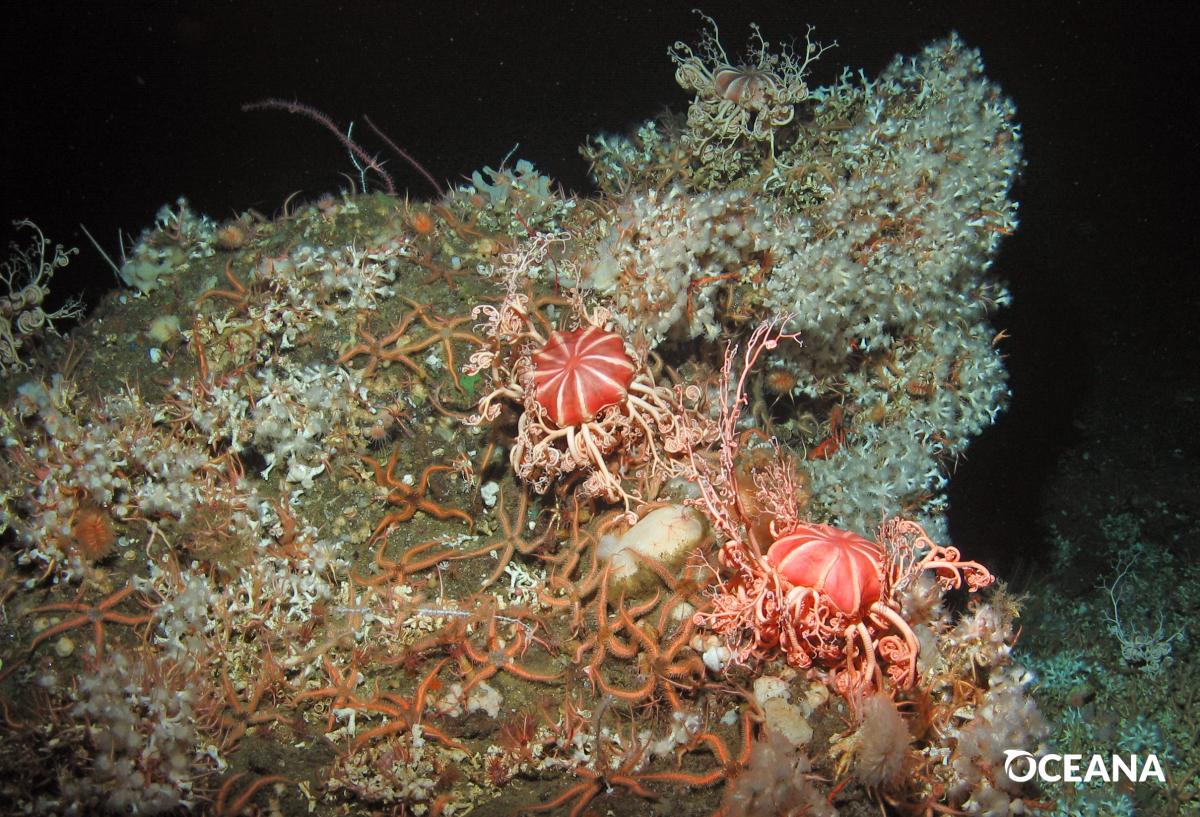
A pair of basket stars and dozens of brittle stars nestle among Lophelia pertusa, the only known species of reef-building cold-water coral in the Footprint Marine Reserve south of Santa Cruz Island. This coral species was only thought to inhabit waters off Europe until it was discovered here a few years ago.
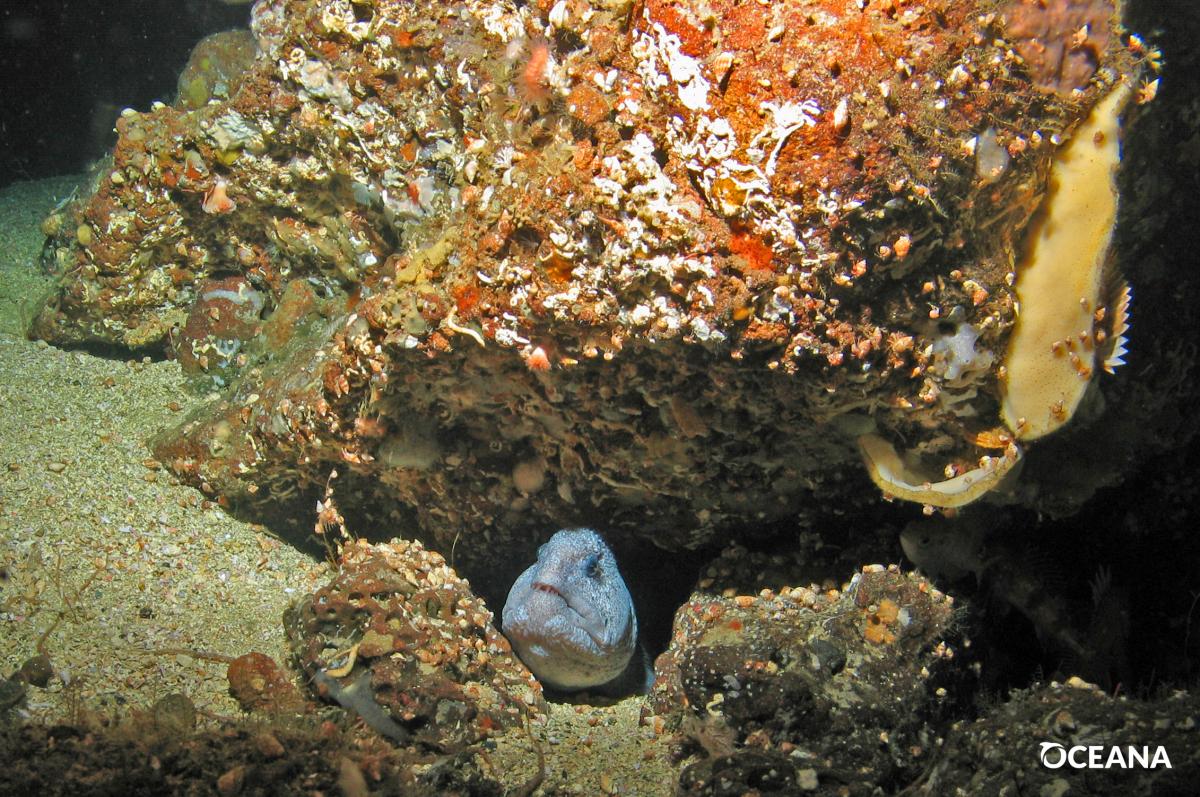
A wolf eel hides under a large boulder in the Santa Rosa Channel, while the spines of a rockfish can be seen behind a nearby sponge.
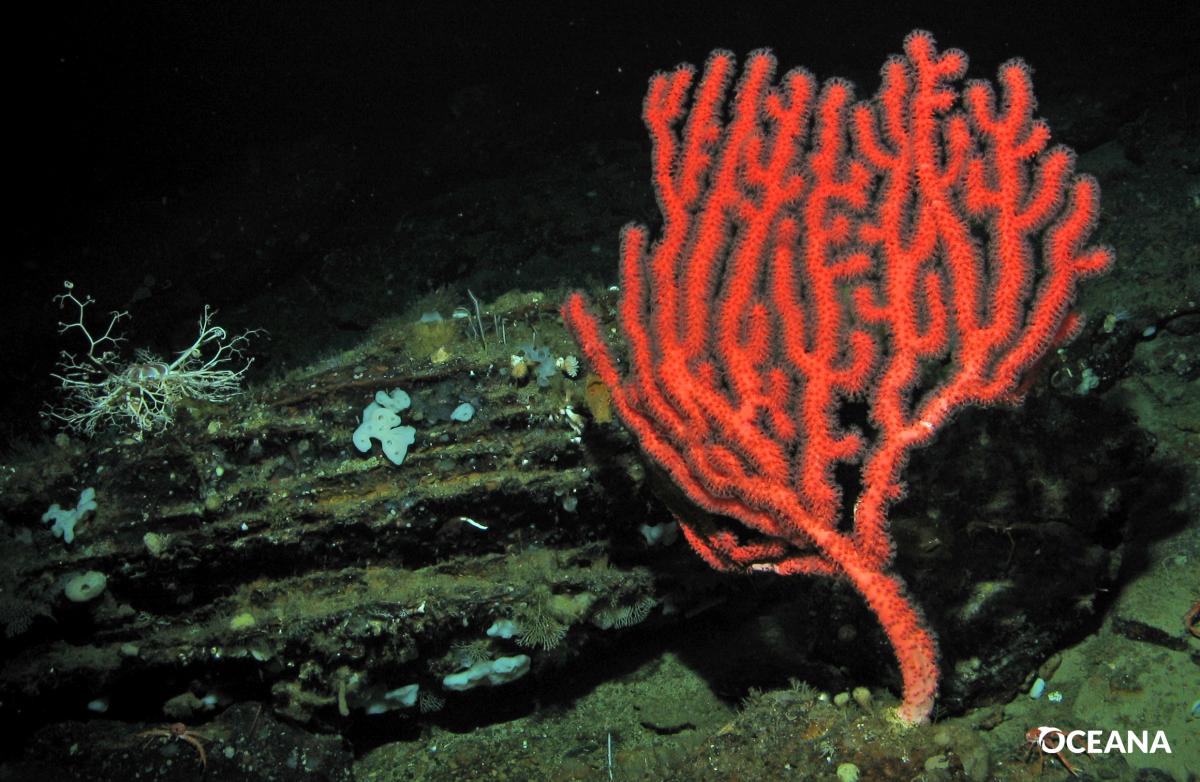
Bubblegum coral (Paragorgia sp.) discovered at Butterfly Bank, a remote chain of underwater mountains and ridges 75 miles west of the San Diego coast.
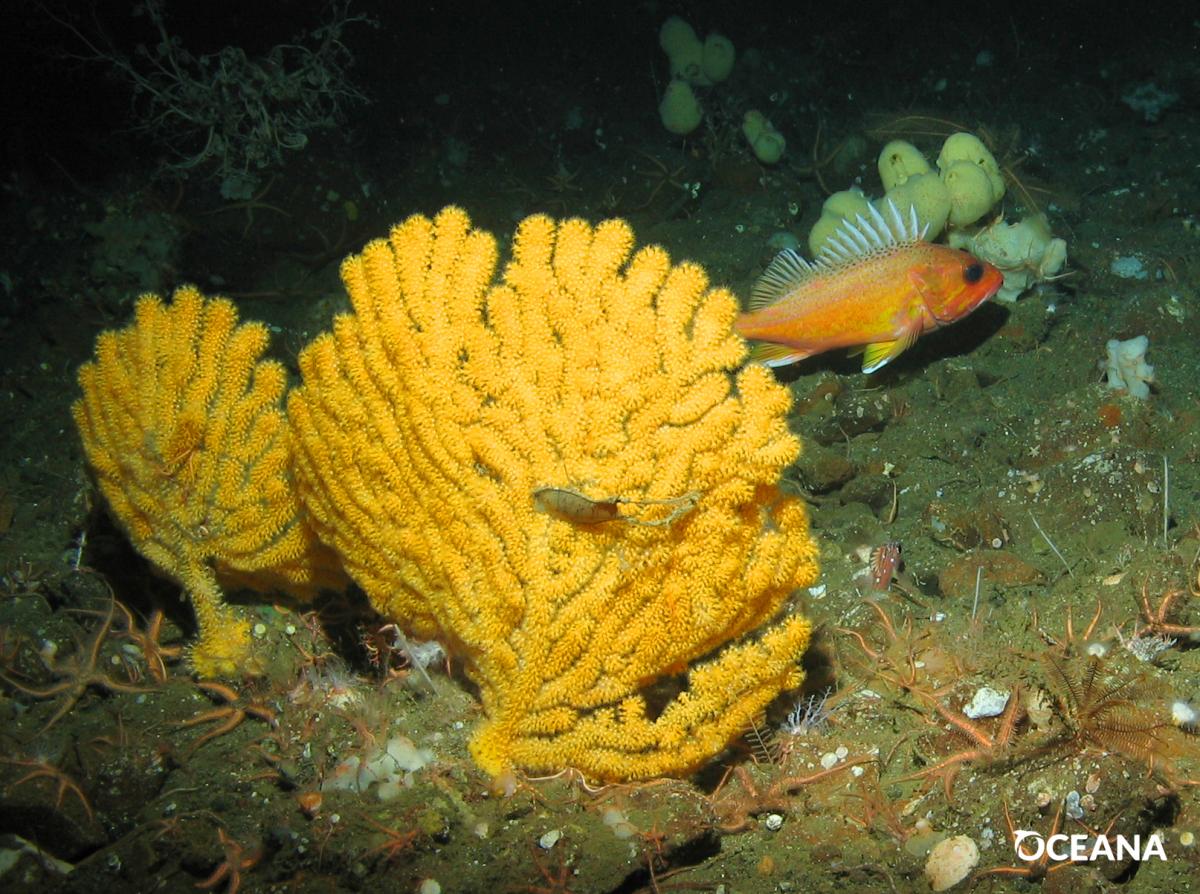
A greenspotted rockfish (Sebastes chlorostictus) hides behind gold coral south of Santa Cruz Island. A shark egg case is attached to the gold coral.
Diaries
In the News
BLOG
around the Web
August 11, 2016
Alexandra Cousteau Discusses Oceana expedition on Michaela Live
Source: 'Michaela' on HLN
August 8, 2016
Ocean advocates map SoCal seafloor in bid to protect it
Learn More


